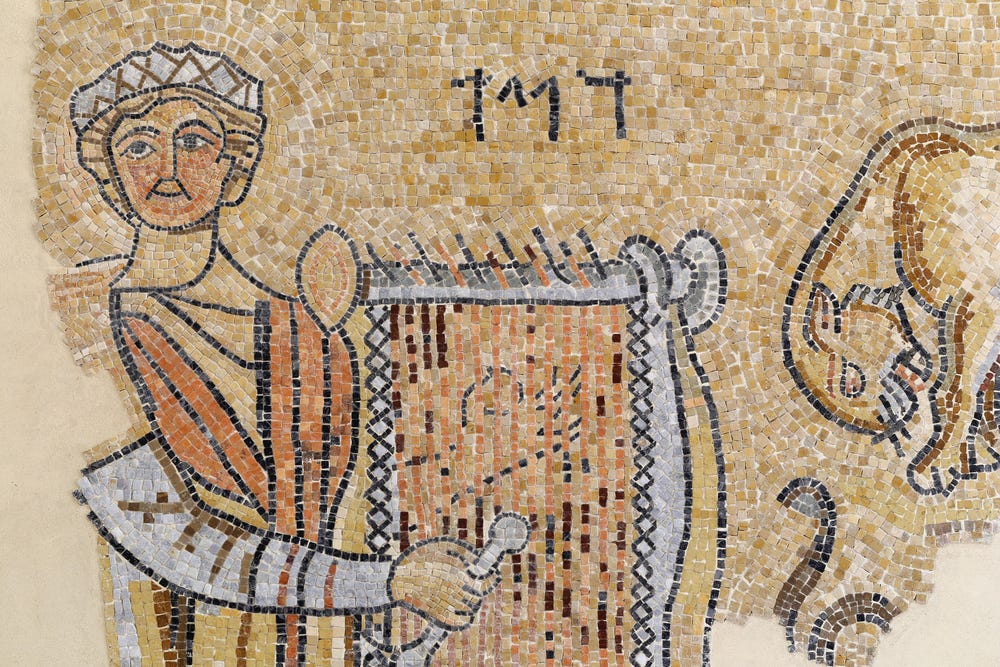A Timely Lesson In Leadership From The Weekly Torah Portion
Attention Bibi and Trump: Even kings make mistakes. But redemption comes from humility.
Despite his sins, David is seen as Israel’s greatest king.
It’s only fitting that this past Shabbat, the day before Israeli Prime Minister Netanyahu flew to Washington for a Monday meeting at the White House with Donald Trump, the weekly Torah reading offered a vital lesson on what makes a great leader. And how to respond to inevitable abuses of power by heads of state.
Rabbi Shai Held, president, dean and chair of Jewish Thought at the Hadar Institute, explores that lesson in “The Heart of Torah: Volume 2,” his fresh and enlightening book of essays on the weekly Torah portions. He writes that “a seemingly innocuous grammatical point in Leviticus 4 has generated enormous controversy – and yielded profound insight into the nexus of power, leadership, sin and transformation.”
The Torah portion focuses on the various sin offerings to be brought to the mishkan (tabernacle). Held points out that all but one describe the appropriate form of sacrifice that is in order “if” a person sins. The one exception relates to the societal leader, and says not “if” but “when” the chieftain sins. That’s because, as one 13th century sage notes, it is certain that the leader or king will sin “because he becomes extremely haughty. And arrogance, which is the cause of sin, is present in him by virtue of the magnitude of his rule.”
Other rabbis over the centuries expand on this point, asserting that the very nature of being in a society’s top position “all too often leads to a sense of entitlement, of being above the law and not accountable” to be judged as everyone else. Curiously, Rabbi Yochanan ben Zakkai, who lived 2,000 years ago, comments: “Fortunate is the generation whose ruler brings a sacrifice for the sin he has committed unwittingly.” Held poses the question: Wouldn’t we prefer a leader who is careful not to sin? But he explains that ben Zakkai is praising a leader who has a sense of humility, recognizes and publicly admits his shortcomings and holds himself answerable to God – and to his people.
Reading of these rabbinic discussions from centuries ago in the harsh light of today’s daily headlines, we American Jews are faced with an age-old problem. The leaders of the two countries we love most appear unwilling or unable to admit mistakes. They respond to serious allegations of violating the law of the land by insisting they are the law. They blame everyone around them for their troubles, never themselves. They lash out at their critics as enemies of the state. They seem committed to sacrifice the rights and safety of their fellow citizens as the price for maintaining and extending their own power.
Noting that leaders who take responsibility for their failings are all too rare, Held describes the fall and redemption of King David. It was King David who lusted after Bathsheba and arranged to have her husband killed in battle so he could marry her. As told in the Book of Samuel 2, God was angry at the king for his actions and sent the Prophet Nathan to chastise him to his face. Finally, King David confesses. No excuses or double-talk. He says just two words: “Chatati Lashem,” I have sinned against God.
For that simple declaration, King David retains his reputation as the greatest of all Jewish kings. God and Jewish ethics do not demand perfection. Just honesty, a sense of humility, a desire for forgiveness.
How sad that such behavior from the president of the United States and the prime minister of Israel seems unimaginable today.
Note: I am grateful for Rabbi Held’s scholarship and insights found in his essay. To be clear, I, not he, made the connections to today’s political situation.





Thank you for sharing this commentary and for your insights, Chag sameach , hope springs eternal for the Festival of freedom
Nice article, the connection of STOPPING ..HAM ! Hubris arrogance and machorhood in leaders in all the world and is a real phenomen in jews in israeli and us politics! The best place to examine it up close is in the gaggle of jewish organizations that are crucial first step to growing jews or stopping the diaspora decline! Dont shy away from challenging this status quo, of those leaders its a necessary part of imparting "feedback" to lead to improvement!